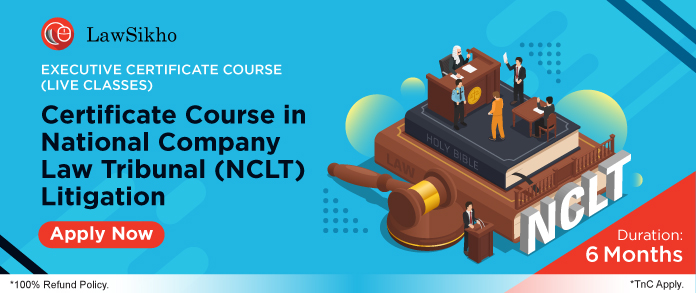This article is written by Malvica Satija, pursuing Certificate course in Arbitration: Strategy, Procedure and Drafting from LawSikho.com.
Arbitration is slowly coming out to be a preferred means of redressal for all kinds of disputes. The reason behind this is two fold. Firstly, the period of globalization witnessed by the technology industry has led to its rapid growth, giving birth to more contractual obligations. The recent Amendments in the Arbitration and Conciliation Act, 1996 have made arbitration as a preferred mode of dispute resolution.
Countries have a mild competition when it comes to these arbitration centres. Each one of them strives to outdo the other in terms of laying down relevant and valid laws. Countries also learn and adapt from one another. If the law laid down by a country is deficient and insufficient in some way, then the other nations aim at filling that gap.
Arbitrability of Technology Disputes
Arbitrability of matters has always been a big issue. Generally, it is held that matters, which are ‘commercial’ in nature, are to be resolved through arbitration. However, an area which remains untouched by the realm of arbitration is Technology. Technology Disputes are those which come out of licensing agreements. Under these agreements, a person who owns the intellectual property rights gives the rights to produce and distribute the same to another individual. It may also extend to granting rights to utilizing or marketing a product.
The kind of disputes which generally arise out of these licensing agreements are where the rights are misused/improperly used. Also, sometimes even royalties are owed to the licensor. Another example of technology disputes is where part property qualifies as being intellectual property. This requires looking at the ownership, valuation etc. of the said property.
Elements of International Technology Disputes
Technology Disputes are complicated due to the nature of the agreements in question. Licensing Agreements are technical in nature and require specialized knowledge due to degree of complications involved. There are a number of elements involved in International Technology Dispute Resolution-
Fairness & Neutrality
Neutrality plays a very important role in International Technology Disputes due to the presence of more than one nation. Generally, one characteristic common in such disputes is forum avoidance. There is a degree of avoidance due to doubts on fairness and transparency in adjudication. Parties have hesitation that they won’t be able to get an opportunity to present themselves and shall be subject to bias.
The counter-effect of such a hesitation is that parties prefer adjudicating the matter in their jurisdiction and refuse to hold the proceedings in the area of the other party. This gives rise to nothing but more conflicts. These clashes are not only limited to legal, but also expand to the realm of cultural conflicts which acts a deterrent to effective dispute resolution.
Quick & Flexible Resolution
Generally, arbitration of international disputes is considered more
flexible due to the following reasons-
- Party Autonomy and freedom of the Tribunal subject to provisions of the arbitration agreement. The Tribunal has the liberty to decide the rules governing the evidential matters etc.
- Parties have the autonomy to decide the arbitrators, the interim measures, language and the degree of formalities.
- Also, intervention by local courts is limited.
These factors become relevant and significant when taking technology disputes into consideration. Since arbitration involves companies who are trying to balance professional relationships with other companies as well, arbitration is the way to go.
Confidentiality
Confidentiality becomes of paramount importance when talking about Technology Disputes. Technology disputes involve exchange and discussion regarding copyrighted and patented information. A huge number of these disputes deal with confidential information who’s disclosure can hamper the interest of many stakeholders. Section 42A of Arbitration and Conciliation Act, 1996 makes confidentiality obligatory in International Arbitrations. Similarly, arbitration centers of Singapore and Hong Kong support the ideologies of implied confidentiality, which makes arbitration a favorable alternative to dispute resolution.
Specialized Knowledge and Expertise
Having specialized knowledge and expertise on the panel is very essential in the cases of arbitration. Matters dealing with technology are complicated and cannot be adjudged by those who don’t have the knowledge pertaining to the said subject. When such a matter will be adjudicated by a person with less expertise then the direct consequence will be injustice to parties. Arbitration comes hands on in these cases as there is greater level of diversity, issues are taken in much more seriousness leading to effective decision making.
Execution and Enforcement
Two things to keep in mind in International Disputes are that –
- Laws dealing with arbitration differs from country to country.
- No national law can cure the ailment where an order becomes unenforceable due to absence of law in that country.
In practical reality, not many nations advocate arbitration of intellectual property rights issues. One situation where the parties can be stuck is that the home countries of the parties to suit recognize arbitration of such disputes, but the country where such an arbitral award has to be enforced doesn’t recognize the same. There won’t be any remedy in that case as there is no uniform or standard law pertaining to arbitration throughout the world.
For instance, under Article V(2) of the New York Convention, enforcement of those arbitral awards who’s subject matter is not arbitrable in the eyes of the said country cannot be executed in any circumstance.
Interim Relief regarding Injunction
In comparison to domestic courts, International Courts are hesitant in passing interim reliefs and injunction orders. In Technology disputes, these reliefs play a very major role as the matter/issue and information at hand is sensitive and meant to be kept confidential. Also, a sense of emergency prevails and hovers over the parties. Not passing such orders can also lead to failure of justice and adversely effect the parties.
International Technological Disputes in light of Arbitration and Conciliation Act, 1996
Recently, several amendments have been made to the Arbitration and Conciliation Act, 1996 that have made India a favorable hub for International Technological Disputes.
- Confidentiality of Proceedings- Section 42A
Section 42A lays down that the institution, parties and the appointed arbitrator must not disclose information which deals with the proceedings. Also, only one exception has been laid down that the information regarding award may be exempted when the disclosure becomes necessary for the purpose of execution and enforcement.
This provision becomes important in technology disputes as the information at hand is patented and copyrighted. As a result, majority of information needs to be kept confidential.
- Grading of Arbitrators and Institutions by the Council
Under Part1A, Arbitration Council of India shall be formulated which shall be responsible for promoting and regulating the arbitration proceedings and rules in India. The council will also rate and grade the arbitrators on the basis of their ability, skills, knowledge and expertise. The norms for such accreditation including qualifications shall be laid down in the Eighth Schedule.
This provision becomes relevant in Technology disputes as they are technical in nature and require specialized knowledge and skills.
- Timeline for Completion of Proceedings
In case of domestic proceedings, a limit of 12 months is placed on the tribunal for passing the arbitral award. However, a limit hasn’t been placed in international commercial arbitration, but it has been held that the award must be made expeditiously and efforts must be made for passing the award within 12 months.
This provision becomes relevant in Technology Disputes as parties require speedy redressal and solution to their grievances due to the sensitivity of the information involved.
- Qualifications and Norms for Arbitrators
The Act now lays down a list of exhaustive qualifications for appointment of an arbitrator such as Chartered Accountant, Cost Accountant, Company Secretary, Officer etc. Moreover, several norms, which are deemed necessary for an effective arbitration proceeding, were laid down. Aspects such as neutrality and impartiality were introduced along with knowledge about natural justice and other laws. The arbitrator should also be capable of writing and recommending a fair and reasonable arbitral award.
This provision becomes relevant in the Technology Disputes as a certain level of expertise is required in these disputes because of the kind of information involved. If award in such disputes will be passed by an unqualified arbitrator, it will result into nothing but failure of justice.
Conclusion
Companies all over the world are increasingly entering into contracts giving rise to contractual obligations. Where there are such contracts, the risk of dispute is present. Moreover, in agreements that revolve around sensitive and confidential information, the risk of dispute increases more than usual. Another aspect which greatly influences arbitration proceedings between companies of two nations is the absence of a uniform code. As a result, the laws of the country where seat is to be allocated and award is to be enforced needs to be studied with detail.
However, Litigation comes with its own set of challenges and hindrances. These alternative mechanisms aim to expedite the whole process and carry things forward in an orderly manner.
In today’s time, technology disputes need confidentiality, transparency, speedy remedy and expertise. All these characteristics are duly provided under the Arbitration and Conciliation Act, 1996. This makes India the growing hub and controversial in the entire arbitration fraternity.
Students of Lawsikho courses regularly produce writing assignments and work on practical exercises as a part of their coursework and develop themselves in real-life practical skill.
LawSikho has created a telegram group for exchanging legal knowledge, referrals and various opportunities. You can click on this link and join:
 Serato DJ Crack 2025Serato DJ PRO Crack
Serato DJ Crack 2025Serato DJ PRO Crack











 Allow notifications
Allow notifications


